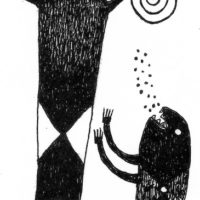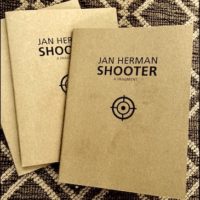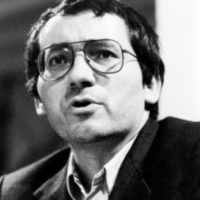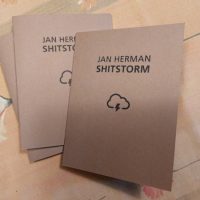” ‘A Something Else Reader’ is a previously unpublished anthology edited by Dick Higgins in 1972 to celebrate Something Else Press, the publishing house he founded in 1963, and to showcase Fluxus and other experimental artistic and literary forms. … He assembled the table of contents and an introduction into a proposal, which went into his archive, where it was found by scholar and curator Alice Centamore, who compiled the works and assembled it.” — Primary Information
A Something Else Reader
Tent Shaker Vortex Voice
A Poet Inspired by Lucretius and Lauren Eisley
Charles Plymell’s extraordinary chapbook “Tent Shaker Vortex Voice” has just been released in a fourth printing by Bottle of Smoke Press. In a new prefatory essay to the long poems “We Heard the Game Lord Speak …” and “Planet Chernobyl,” he writes that he has “drawn upon Lucretius and Loren Eisley,” along with “many great thinkers from Darwin to modern atomic theorists” as well as Shakespeare. Plymell, who recently turned 87, is the author of two dozen books of poetry and prose.
‘The archetypes are in us, and eternal’
“I was dreadfully alive to nervous terrors. The night-time solitude and the dark were my hell.” — Charles Lamb, as quoted by John Gross.
Lamb believed that superstition could have generated the apparitions he feared. But at bottom he discounted that. “These terrors are of older standing. They are transcripts, types—the archetypes are in us, and eternal,” he wrote. I thought of him last week when I saw this painting.
A Great Writer of Spy Thrillers Told the Awful Truth
‘Men had learned to sniff the heady dreamstuff of the soul and wait impassively while the lathes turned the guns for their destruction.’
— Eric Ambler
When a Poet Takes a Walk With Book and Camera
A I R F I E L D
‘Now that my hand just
reached into the book shelf
and grabbed your book,
it looks like you’ll be walking
out on the airfield with me …’
Rimbaud’s Death Is Still Traveling
Efe Murad’s Turkish translation of “Rimbaud. Death in Marseille” has just been published. Carl Weissner’s small masterpiece — small only because it isn’t longer — is now a Turkish delight. Murad is a poet and historian, as well as a translator.
Asa Benveniste: Sylvia Plath’s ‘Afterlife’ Neighbor
“If Sylvia Plath would likely not have chosen to be buried in Heptonstall, Asa Benveniste definitely chose the location of his own grave, having spent the final years of his life in Hebden Bridge, the valley town that adjoins Heptonstall.” — Jay Jeff Jones
Jack Kerouac at 100, the Beats in Ruigoord
Kerouac fans In The Netherlands have been celebrating his centennial with readings, film presentations, and concerts throughout 2022. The celebration will culminate on Oct. 9 at the artists’s village of Ruigoord, near Amsterdam. An international gathering of writers, performers, and scholars will pay tribute, along with keynote speakers Joyce Johnson and Ed Sanders, who are to participate via Zoom.
Celebrating Sylvia Plath
A Poet’s Flame Burns Brighter Than Ever
“It’s a late winter’s afternoon on the top of Cross Hill, with Hardcastle Crags on one side and Colden Valley on the other. Down in their depth of hibernating trees and gritstone slabs, darkness isn’t coming down — it’s rising like a cold damp tide.” So begins Jay Jeff Jones’s uncommonly rich meditation on the poetic afterlife. It arrives nicely timed to an upcoming celebration of Sylvia Plath for what would have been her 90th birthday.
A Hero of Our Time
Lermontov + Edward Gorey + Nabokov = Paperback Keeper
The cover of this mass-market paperback of Mihail Lermontov’s 1840 novel, “A Hero of our Time,” was designed by Edward Gorey. It is taken from a portion of a painting by Lermontov. The typography is also by Gorey. I show it here because it is such a gem, and because a cover of this caliber doesn’t often come along. The 1951 paperback edition was the first publication of of Vladimir Nabokov’s translation from the Russian in collaboration with Dmitri Nabokov.
‘The Sex Pistols Had the Royals in Their Sights’
or ‘Off With Their Heads’ . . . from ‘An Investigative Poem’ by Heathcote Williams” (for those disgusted by the nauseating glorification of the House of Windsor).
Heathcote Williams
Uncensored, ‘Advertisement’ for a Supermarket
‘The people who run Tesco must be Buddhists / You go in there and things are exactly as they should be / There is nothing that you could possibly want / Bits of telepathic animals neatly shrouded in heat-raised polystyrene / With Magic-Maker gravestones. / Dyed tomato mulch slobbering to itself in lead-lined tubular coffins, / Zilched by monosodium glutomate.’ — Heathcote Williams
Of Plumbers and Philosophers
Some old proto-Freudian
out of the German Yellow Pages
is looking up at me
from the kitchen floor
where he’s installing a new P-trap
under my kitchen sink,
telling me about how things are
and how they used to be . . .
Tabloid Photographer + Rock Star + White Supremacy
“SHOOTER: A Fragment” is just out from Moloko Print in its new chapbook series. It begins: “Jerry Crane did not believe in perfection any more than he believed in his real name. If he had, he would never have worked as a shooter for the tabloids. Crane was born Jiri Kiranek, a truth-telling fabulist, tall and lean, a refugee from wealth and privilege. In his younger days he was often high speed, always riffing, full of imagination, his bitter humor tinged with sardonic taunts. Now not quite in middle age, he still had a facile street-smart intellect. He told ambling, long-limbed tales. It was a peculiar form of truth-telling.”
Independent Filmmaker, Principled Artist
Kenneth Anger held to his vision over a lifetime and, just as important, to his convictions.
Jörg Fauser: Outsider Among Outsiders
Lou Schneider liked his manuscript of ‘Stamboul Blues’ and got him started as a published writer. It was the cold junky eye, the alienation and disillusionment, the unemphatic humor—acid but deadpan—that appealed to Schneider, though perhaps I’m projecting what appeals to me.
A New Chapbook Series
Coming from Moloko Plus, This Is One of Them
‘Shall we / be lighthearted / to ward off / the shitstorm? / Tra-la la-la. / Or shall we / bite our elbows / to the bone? / Tra-la.

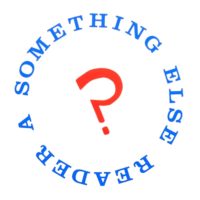
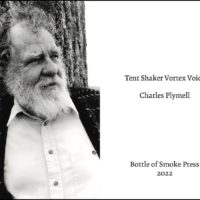
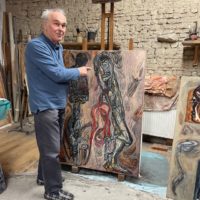
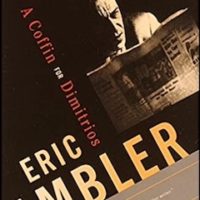
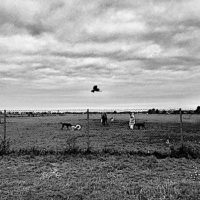
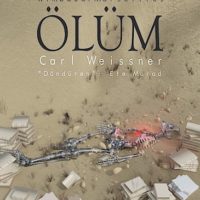
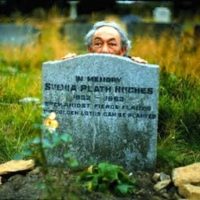
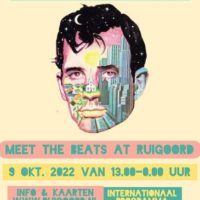
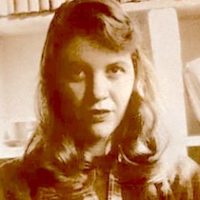
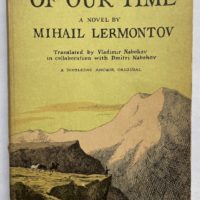
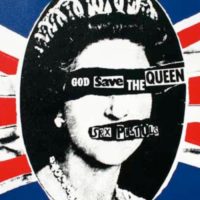
![Heathcote Williams [Photo: JH, 2013]](https://www.artsjournal.com/herman/wp/wp-content/uploads/2017/07/heathcote-williams-photo-copy-200x200.png)
